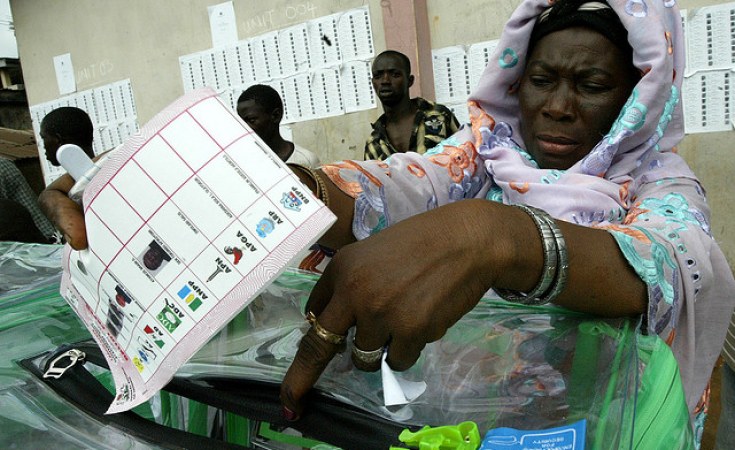Cape Town — President Joyce Banda was not the front-running candidate in the run-up to this month's elections in Malawi, but the race was too close to call, according to a public opinion survey conducted six to eight weeks before next week's polls.
The survey, conducted by the African public opinion survey project, Afrobarometer, found that in the period March 23 to April 7:
- The Democratic Progressive Party (DPP) and its presidential candidate, Peter Mutharika – brother of former president Bingu wa Mutharika, who died in office in 2012 – had a "slight edge" over its rivals. Mutharika was favoured as president by 27 percent of adult Malawians, and his party by 23 percent in the parliamentary election race.
- The Malawi Congress Party (MCP), which ran Malawi as a one-party state under the leadership of the country's first president, Hastings Kamazu Banda, for nearly 30 years, was running in second place. The party was preferred by 18 percent of adults for Parliament and its presidential candidate, Lazarus Chakwera, by 21 percent.
- The People's Party of President Joyce Banda, which she founded after being sidelined as vice-president by Bingu wa Mutharika, was running neck-and-neck with the MCP. Eighteen percent of adults favoured the party in parliamentary elections, and she was drawing the support of 19 percent of adults for the presidency.
- The United Democratic Front, which ended the rule of the MCP in 1994 and under whose banner President Mutharika first governed, was chosen by 11 percent in parliamentary polls. Its candidate, Atupele Muluzi – son of Bakili Muluzi, who ruled Malawi for two terms after 1994 – was preferred by 14 percent in the presidential race.
However, 15 percent of Malawians either did not know or would not reveal their choices at the time they were polled. This proportion "is larger than the margin between the individual candidates and parties," Afrobarometer noted, throwing the outcome of the election wide open.
Apart from the fact that potential voters' views may have changed by the time they vote next Tuesday, Afrobarometer says it is not known how many young, first-time voters have registered and will vote, and this could influence the result.
Previous Afrobarometer polling has shown that the four parties named as favourites are the only groups with any substance: a survey in 2012 concluded that the rest of the country's parties were "simply insignificant," a number of them being described by Malawians as "briefcase parties" identified only with their leader.
The 2014 poll has also confirmed what Afrobarometer described as "stark" regional differences in voting intentions, with President Banda's People's Party overwhelmingly popular in the north (53 percent support and no other party enjoying more than 15 percent), the MCP the most popular in the centre of the country (44 percent of respondents, no other party having more than 18 percent) and the DPP (43 percent) and the UDF (24 percent) most popular in the south.
In other findings, 78 percent of respondents said the country was going in the wrong direction at present. President Banda's approval rating has dropped from 68 percent after she took office in 2012 to 38 percent in 2014.
But the commitment of most Malawians to multi-party elections is solid, and rising. The number of those who agreed strongly that elections were the best way of choosing leaders rose from 55 percent in 2012 to 65 percent in 2014.
And 71 percent now want "regular, open and honest elections," with 74 percent agreeing that "many political parties are needed to make sure that Malawians have real choices in who governs them."
Malawians also believe they can choose their parties and candidates freely. More than nine in 10 say they are "completely free" in making their choices, six in 10 say voters "never" face threats of violence when they vote, and seven in 10 have little fear of intimidation and violence.
But they are more divided on whether the media provides fair coverage for all candidates. They are also worried about bribery, with 31 percent saying voters are often bribed, and another 30 percent saying that this happens "sometimes".
Many also question how free and fair elections will be, with just under half expecting them either to be completely free, or with minor problems. Only one in three say votes are often or always counted fairly and a "significant minority", says Afrobarometer, is not confident in the Malawi Electoral Commission.
The Afrobarometer survey was based on a nationally representative sample of 2,400 adults and has a sampling error of plus or minus two percent at a 95 percent confidence level.
Afrobarometer is a collaboration of social scientists from 35 countries across the continent, with technical support from the Michigan State University in the United States and the University of Cape Town in South Africa.
The analysis of the Malawi survey was carried out by Carolyn Logan, an assistant professor in the Department of Political Science at Michigan State University, Michael Bratton, University Distinguished Professor of Political Science and African Studies at Michigan State, and Boniface Dulani, Afrobarometer operations manager for fieldwork and a lecturer in the Department of Political and Administrative Studies at the University of Malawi.


